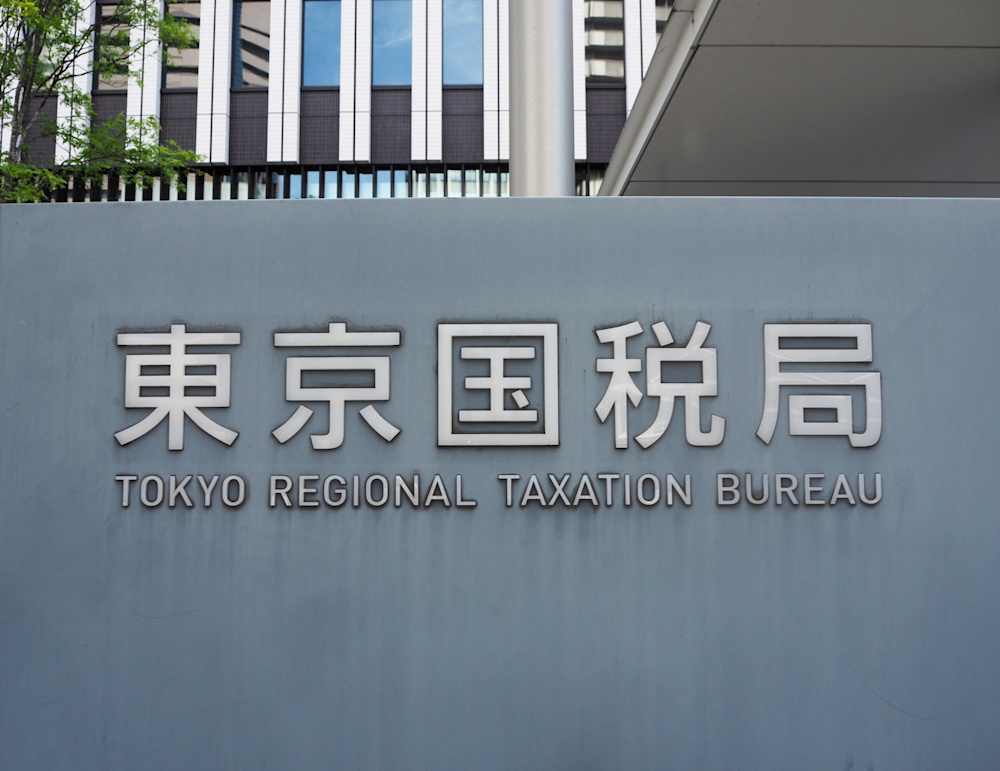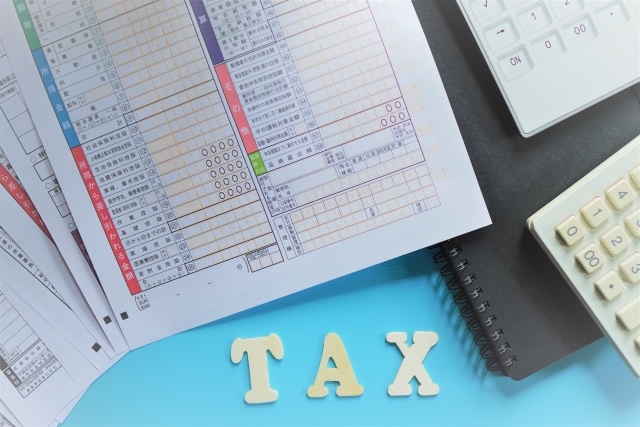Updated August 6, 2025
Japanese Exit Tax: Everything You Need to Know Before Leaving Japan
If you're preparing to leave Japan after years of working and accumulating significant assets during your stay, you should know about Japan's exit tax.
The exit tax can substantially impact your finances and, therefore, requires careful planning before your departure.
Let's thoroughly explore what this tax means for you, who needs to pay it, and how you can successfully navigate it to ensure compliance while potentially minimizing your tax burden.
In this article: 📝
What is Departure Tax vs. Exit Tax in Japan? Understanding the Difference
Here's something that frequently confuses both tourists and long-term residents: when you search for information about "exit tax" in Japan, you'll encounter two completely different types of taxes that serve entirely different purposes.
International Tourist Tax (Departure Tax)
This is a straightforward ¥1,000 departure tax that every single person leaving Japan must pay, regardless of whether they're tourists on a week-long vacation, business travelers, students returning home, or permanent residents taking an overseas trip.
This tax is automatically included in your airplane or ship ticket price, and doesn’t require any additional paperwork or calculations. It applies to both Japanese nationals and foreign visitors alike, with very limited exceptions for children under two years old and transit passengers departing within 24 hours of entering the country.
Japanese Exit Tax for Residents
This is the substantial tax we're focusing on today—a complex capital gains tax on unrealized profits that certain long-term residents with significant assets must settle before moving out of Japan.
Unlike the simple departure tax that everyone pays, this exit tax specifically targets individuals who have built substantial wealth while residing in Japan and are now planning to relocate to another country.
This tax represents a completely different level of complexity that could potentially cost you millions of yen if you don’t get it settled.
Let’s go into more detail.
What is Exit Tax in Japan? A Comprehensive Overview
Japan's exit tax, officially designated as "taxation at the time of moving out of the country" under Article 60-2-5 of the Income Tax Act, requires individuals who built wealth using Japan’s economy and infrastructure to pay a fair share to the government before moving their assets abroad.
This taxation system isn't unique to Japan, as many developed nations, including Canada, Australia, and several European countries, have implemented similar exit tax regimes.
However, Japan's version has specific characteristics and thresholds that make it particularly important for high-net-worth individuals and successful entrepreneurs who have spent significant time in the country.
What Assets Are Subject to the Japanese Exit Tax?
The exit tax applies to a broad range of financial instruments and investment assets, essentially covering most types of securities and financial products that could appreciate in value over time:
Listed and unlisted stocks, including shares in both Japanese and foreign companies.
Corporate bonds, government bonds, and other debt securities.
Investment trust beneficiary rights and similar collective investment schemes.
Outstanding derivative transactions, including futures, options, and forward contracts.
Foreign currency deposits and foreign currency-denominated assets.
Cryptocurrency holdings and digital assets (as clarified in recent tax guidance).
Other securities and financial instruments that the tax authorities deem appropriate.
Notably, the exit tax doesn't apply to real estate holdings, personal property, or cash in regular bank accounts. It focuses only on financial assets that typically generate capital gains through market appreciation rather than through direct use or consumption.
Japan Exit Tax Rate and Calculation Methods

The Japan exit tax rate follows the standard capital gains tax treatment in Japan, which means you'll typically face a combined rate of approximately 20.315% on your unrealized gains.
This consists of 15% national income tax, 5% local inhabitants’ tax, and 0.315% special reconstruction tax that was introduced following the 2011 earthquake and tsunami.
The calculation process involves determining the hypothetical gain you would realize if you sold all your qualifying assets on the day before you departed from Japan, with the formula being:
Exit Tax = (Current Market Value - Original Purchase Price) × 20.315%
For example, if you own stocks worth ¥150 million that you originally purchased for ¥50 million, your unrealized gain would be ¥100 million. This results in an exit tax liability of approximately ¥20.315 million, a substantial sum that requires careful financial planning to manage effectively.
Who Exactly Needs to Pay Exit Tax in Japan?
The exit tax in Japan applies to individuals who simultaneously meet two specific conditions at the time of their departure from the country:
Asset Value Threshold: The total value of your subject assets (as defined above) must equal or exceed ¥100 million at the time you're preparing to move out of Japan.
The valuation date depends on whether a tax administrator (Nozei Kanrinin) is appointed:
If a Tax Administrator is appointed: The market value on your departure date (e.g., July 2, 2025) is used. For example, if your stocks are worth ¥150 million (bought for ¥100 million), the taxable gain is ¥50 million. You file the exit tax return and pay by March 15 of the next year.
If no Tax Administrator is appointed: The market value three months before your departure date (e.g., April 2, 2025) is used. For example, if your stocks are worth ¥140 million (bought for ¥100 million), the taxable gain is ¥40 million. You file the exit tax return and pay by your departure date.
Residence Duration Requirement: You must have resided in Japan for more than 5 years within the 10-year period immediately preceding your departure date.
The residence requirement deserves particular attention because the Japanese tax authorities have established detailed rules about which periods of stay contribute to the 5-year threshold. This system can produce surprising results for individuals who haven't carefully tracked their status over the years.
Special Rules for Visa Status and Residence Calculations
When calculating your period of residence in Japan, time spent under certain visa categories doesn't count toward the 5-year threshold, effectively excluding many temporary residents from the exit tax.
Excluded visa categories include:
Diplomatic and official visas
Student visas (both regular students and pre-college students)
Trainee and technical intern training visas
Researcher and instructor visas
Business investor and business manager visas
Legal and accounting services visas
Medical services visas
Intra-company transferee visas
Short-term stay visas (tourist visas)
Cultural activities and religious activities visas
In addition, foreign nationals who held permanent resident status before June 30, 2015, may benefit from special transitional rules that may exclude certain periods from the residence calculation, potentially reducing their tax obligations.
Exit Tax in Japan for Foreign Residents: Key Considerations
One of the most important points to understand is that Japan's exit tax applies equally to foreign nationals and Japanese citizens, making nationality irrelevant to the tax obligation as long as the asset value and residence requirements are met.
This universal application catches many expatriates off guard, particularly those who assume that, as foreign residents, they'll be exempt from such departure taxes or that their home country's tax treaties will provide complete protection.
For foreign residents, the exit tax creates a series of challenges related to international tax planning. You must consider Japan’s tax rules, how your home country taxes the assumed sale of assets, and whether foreign tax credits can reduce double taxation on the same gains.
Why Japan Introduced the Exit Tax System
The tax was implemented to stop tax avoidance by wealthy individuals who built up large capital gains in Japan and then moved to low-tax or no-tax countries before cashing in those gains.
The policy reflects the government's position that "profits on assets that have increased in value in Japan should be returned to Japan," essentially ensuring that the country receives its fair share of tax revenue from wealth created within its borders.
This approach aligns with similar measures adopted by other developed nations facing comparable challenges with international tax competition and the increasing mobility of both individuals and capital in an interconnected global economy.
Positive and Negative Impacts of Japan Exit Tax
Like most tax policies, Japan's exit tax isn't winning any popularity contests among those who have to pay it, but does it serve a legitimate purpose? The debate gets pretty heated depending on which side of the tax bill you're sitting on.
Why the Government Thinks It's a Good Idea
For starters, the Japanese government sees this as plugging a pretty obvious loophole. Without the exit tax, what's to stop someone from building up millions in stock gains while living in Japan, then conveniently moving to a tax-friendly country right before cashing out?
From their perspective, it's about fairness. If you made your money while enjoying Japan's infrastructure, stability, and business environment, they believe you should pay your share before taking that wealth elsewhere.
This isn't just Japan being stubborn. Many developed countries like Germany, Canada, and France have similar systems.
The revenue isn't anything insignificant either. When someone with substantial assets leaves Japan, the exit tax can generate tens of millions of yen for government coffers, money that helps fund everything from healthcare to public transportation.
Why Many Residents and Businesses Are Concerned
If you're an expatriate who's built a successful career in Japan or a foreign entrepreneur who's grown a business here, the exit tax can feel like a punishment for your success. Imagine being offered your dream job back home, only to discover you're facing a massive tax bill just to leave.
This is a bill based on gains you haven't even realized yet, mind you.
The timing can be particularly brutal. Maybe the market is down when you need to leave, or perhaps you have no intention of selling your assets anytime soon. Too bad—you'll be taxed as if you sold everything the day before departure, potentially forcing you to liquidate investments at the worst possible time just to pay the tax.
Considering Japan's efforts to attract global talent, the exit tax sends a mixed message, which is: "Come build a career here, but be careful about becoming too successful or staying too long."
And so, many international professionals now view the five-year mark as a decision point: stay past it and potentially face exit tax in the future, or leave before reaching it to maintain flexibility.
The complexity of it all adds another layer of frustration. Even figuring out if you're subject to the tax requires navigating a maze of residence calculations, asset valuations, and exemption rules. Most people end up needing expensive tax advisors just to understand their obligations, adding to the overall cost of compliance.
Perhaps the biggest criticism is that the exit tax creates a form of financial handcuffs. You might have perfectly legitimate reasons to leave Japan—family needs, career opportunities, retirement plans—but find yourself unable to leave without incurring a substantial tax penalty. For some, it feels less like legitimate taxation and more like a financial penalty for exercising their freedom of movement.

Strategies to Reduce or Avoid Japan's Exit Tax
While completely avoiding the exit tax may be impossible if you meet the qualifying criteria, several legitimate strategies can help minimize your tax burden or defer payment to a more convenient time:
Asset Value Management: Carefully monitor your asset portfolio to keep the total value below the ¥100 million threshold through strategic timing of acquisitions and dispositions. However, this requires ongoing attention and may limit your investment opportunities.
Residence Period Planning: If you haven't yet reached the 5-year residence threshold, consider whether departing before crossing that line makes sense for your overall financial situation.
Asset Restructuring: Some individuals choose to restructure their holdings before departure, potentially converting appreciating assets into forms not subject to the exit tax or transferring assets to family members where appropriate and legally permissible.
Tax Treaty Benefits: Investigate whether tax treaties between Japan and your destination country provide any relief from double taxation or allow for credit mechanisms that could reduce your overall tax burden across both jurisdictions.
Timing Optimization: Consider the timing of your departure in relation to market conditions, tax year boundaries, and your overall financial situation to minimize the impact of the exit tax on your long-term wealth.
Remember that tax planning strategies must always comply with applicable laws and regulations. What works effectively for one person's situation might be inappropriate or even illegal for another. This makes professional guidance essential when dealing with such substantial financial implications.
When and How to File for Japan Exit Tax
If you're subject to the exit tax, the filing requirements and procedures demand careful attention to detail and timing. Mistakes or delays could result in significant penalties or complications with your departure plans, so here’s the when and how:
Pre-Departure Requirements: You must file a final income tax return (kakutei shinkoku) that includes the exit tax calculation before leaving Japan, typically by March 15 of the year following your departure.
Asset Declaration: Prepare comprehensive documentation of all subject assets, including acquisition dates, purchase prices, and current market values.
Unrealized Gains Calculation: Work with tax professionals to accurately calculate the deemed capital gains on each asset category, taking into account any available deductions or exemptions under Japanese tax law.
Tax Payment Arrangements: Decide whether to pay the entire tax obligation before departure or establish a deferred payment arrangement through the appointment of a tax administrator.
The complexity of these requirements often requires starting the process several months before your planned departure date, particularly if you need to gather documentation from multiple financial institutions or coordinate with tax advisors in multiple jurisdictions.
Japanese Exit Tax Payment Options: Tax Administrator vs. Direct Payment
When facing an exit tax obligation, you have two primary approaches for handling the payment, each with distinct advantages and disadvantages:
Payment With a Tax Administrator (Nozei Kanrinin)
A tax administrator is someone you appoint before leaving to handle your tax tasks, like filing returns and paying taxes. You must submit a Tax Agent Notification Form to the tax office or local government before you leave.
Benefits:
You can delay payment for up to 10 years, helping with cash flow.
You can manage taxes remotely through your administrator.
You can sell assets later to pay the tax when market conditions are better.
Drawbacks:
You need to find a trustworthy person or firm in Japan.
There may be fees for their services.
If they don’t handle taxes properly, you could face penalties like 5-20% for late filing or 2.4-8.7% for late payments.
Direct Payment Without a Tax Administrator
On the other hand, you can choose to settle everything yourself.
Benefits:
Clears all tax obligations before you leave.
No ongoing tax responsibilities after moving.
Simplifies your taxes abroad.
Drawbacks:
You need enough cash to pay the tax immediately.
You might have to sell assets at a bad time to cover the tax.
Most high-net-worth individuals choose to work with a tax administrator due to the flexibility it provides, particularly when the exit tax bill runs into tens of millions of yen and immediate payment would require liquidating investments at unfavorable prices.
Deferment Options When You Can't Afford Immediate Payment
If you're facing a substantial exit tax bill that exceeds your immediate payment capacity, Japan's tax system provides relief mechanisms for qualifying individuals who follow the proper procedures.
The standard deferment allows payment postponement for up to 5 years and 4 months from your departure date, provided you:
Submit a notification of tax administrator appointment before leaving Japan
File the appropriate deferment application with your final tax return
Demonstrate that immediate payment would cause undue hardship
Maintain communication with tax authorities through your administrator
For individuals requiring extended overseas assignments or facing continued financial constraints, an additional extension of 5 years is possible. This brings the total deferment period to 10 years and 4 months, and requires:
Filing a "Notification of extension of grace period for tax payment under the special provisions for transfer income, etc., in the case of moving out of the country"
Submitting the extension request before the initial 5-year period expires
Providing justification for the extended deferment
Potentially providing security for the tax obligation
These deferment provisions prevent forced asset sales, benefiting both taxpayers and the government by preserving asset value.
Critical Japanese Exit Tax Planning Considerations for Future Expats
To avoid exit tax surprises, advanced planning is essential for individuals who might eventually relocate internationally:
Comprehensive asset tracking: Maintain detailed records of all asset acquisitions. Save purchase dates, prices, and supporting documentation, as these will be crucial for calculating your exit tax liability and defending your position if questioned by tax authorities.
Regular threshold monitoring: Conduct periodic reviews of your total asset values to understand whether you're approaching or have exceeded the ¥100 million threshold. Adjust your investment strategy if necessary to manage potential tax exposure.
Residence timeline awareness: Keep accurate records of your visa status changes and understand how different periods contribute to the 5-year residence calculation. Consult with immigration and tax professionals to ensure your understanding aligns with official interpretations.
Professional advisory team: Establish relationships with both Japanese tax professionals and international tax specialists familiar with your home country's tax system, as exit tax planning often requires expertise across multiple jurisdictions.
Liquidity planning: As market timing can significantly impact your overall wealth preservation, consider maintaining sufficient liquid assets or credit facilities. This will help you cover potential exit tax obligations without forcing premature liquidation of long-term investments.
Speaking of Japan's complex tax system, it's worth understanding the full spectrum of your tax obligations while residing here, from consumption taxes like sales tax to income taxes and social insurance contributions. Comprehensive tax planning requires considering all these elements together.

Summary: Navigating Exit Tax in Japan Successfully
Japan's exit tax is a significant consideration for long-term residents with substantial assets. While it may seem daunting, understanding the rules and planning ahead can help you navigate this challenge successfully.
Here are a few key points to remember:
The exit tax applies to residents leaving Japan with assets over ¥100 million.
You need to have lived in Japan for over 5 years (with specific visa exclusions).
Foreign residents are subject to this tax, too.
Payment can be deferred in certain circumstances.
Professional tax advice is essential for proper planning.
Whether you're just starting to build wealth in Japan or already approaching the threshold, it's never too early to understand how the exit tax might affect your future plans. After all, the best kind of tax surprise is no surprise at all.
Get Job Alerts
Sign up for our newsletter to get hand-picked tech jobs in Japan – straight to your inbox.








